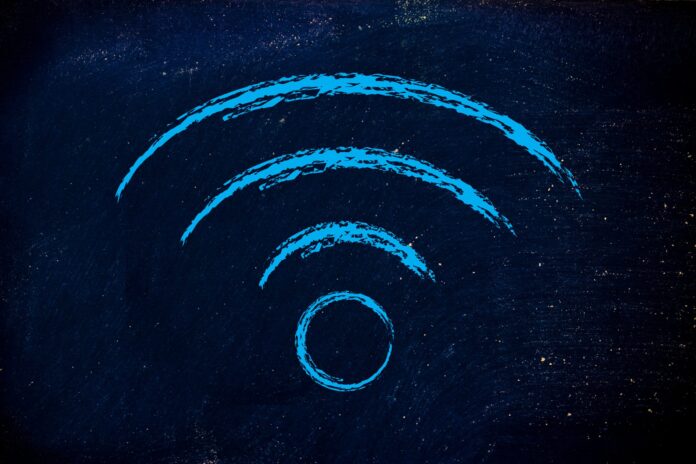New Wi-Fi developments are shaping how IoT devices interoperate in homes, apartments, and MDUs
The connected living landscape has seen two major developments recently — the Wi-Fi for Matter certification from the Wi-Fi Alliance and the latest Matter 1.4.2 release from the Connectivity Standards Alliance (CSA). These initiatives are shaping how IoT devices interoperate in homes, apartments, and eventually multi-dwelling units (MDUs). Both are important not just for device makers, but also for property owners and service providers preparing for the next wave of digital transformation.
Wi-Fi Alliance certification for Matter
The Wi-Fi for Matter certification defines several existing Wi-Fi Alliance features that meet foundational Wi-Fi requirements required for devices seeking Matter certification, starting with access points (APs). The certification consolidates multiple Wi-Fi features into a single program to reduce uncertainty for device makers.
The certification includes:
· Wi-Fi CERTIFIED 6, ensuring WPA3 security and robust QoS for IoT traffic.
· Extended Sleep, which allows APs to advertise sleep intervals longer than 60 minutes, enabling battery-powered IoT devices to conserve energy while staying connected.
· IPv4 ARP Proxy and IPv6 NDP Proxy, which offload network management tasks from constrained IoT devices to the AP, reducing device processing load and extending battery life.
In a recent briefing with Maravedis, Kevin Robinson, president and CEO of Wi-Fi Alliance, explained: “Wi-Fi and Matter are two cornerstone technologies driving the next wave of IoT innovation. With Wi-Fi for Matter, we are helping our members accelerate deployment of products that deliver the scalability, simplicity, and interoperability that consumers expect in their connected homes.”
For large-scale environments like MDUs, these features directly affect operating costs and tenant satisfaction. Hundreds of door locks or thermostats drawing unnecessary power would quickly become a maintenance burden.
Chris LaPré, the Connectivity Standards Alliance’s technology strategist, highlighted the role of Extended Sleep: “When designing a battery-operated Wi-Fi device, consumers expect performance that lasts for months — or even years — on a single battery. Without Extended Sleep, that expectation falls short, with products like locks or sensors losing power in weeks instead of years. This is why we prioritized making Extended Sleep an integral part of Wi-Fi for Matter.”
Matter 1.4.2 Release
Matter 1.4.2 improves the specification in three areas: onboarding, device behavior, and security. A key development is Wi-Fi-only commissioning, enabled by Wi-Fi Unsynchronized Service Discovery (USD). Previously, Matter devices required Bluetooth for onboarding, even if Bluetooth was never used again. USD, also used in Wi-Fi Aware and Wi-Fi Direct, now enables provisioning over Wi-Fi alone.
Kevin Robinson added: “Wi-Fi USD support in the latest version of Matter enables Wi-Fi-only commissioning, allowing a Wi-Fi device to be provisioned onto a Matter network without the need for a Bluetooth radio. Previously, manufacturers had to include a second radio, even if that radio was used solely to onboard the device in its first few seconds of operation. Wi-Fi-only commissioning removes that unnecessary complexity and cost.”
Other notable Matter 1.4.2 features include:
- Standardized behaviors for multi-endpoint devices, such as bridges and multi-sensor units, reducing inconsistencies across ecosystems.
- Updates for robot vacuum behaviors, clarifying commands and states across controllers to avoid mismatched user experiences.
- Enhanced reliability for bridging devices and improved endpoint numbering, critical for scalability in complex deployments.
- Security updates for commissioning and data handling.
Chris LaPré explained why this is important at scale: “Historically, you needed a QR code or a Bluetooth chip to pair devices. That worked for a few smart home products, but not for buildings with hundreds or thousands of endpoints. Wi-Fi-only pairing ensures faster commissioning without redundant radios — and sets the stage for large-scale MDU and commercial adoption.”
Why this matters for MDUs
Matter has so far concentrated on the single-family home market, but its features clearly extend to multi-dwelling units. For the MDU sector, these developments bring potential. With nearly one-third of U.S. households in multifamily properties, standards-based IoT is becoming a requirement for operational efficiency, tenant experience, and competitive positioning.
Property owners and operators do not care about ARP proxies or endpoint numbering. Their concerns are pragmatic:
- Can digital locks reduce locksmith costs?
- Can smart thermostats cut utility bills and enable demand-response programs?
- Can managed Wi-Fi and IoT improve resident satisfaction and retention?
The combination of Wi-Fi for Matter certification and Matter 1.4.2 is moving the MDU closer to reliable, large-scale, interoperable deployments that directly address those practical aspects.
Our Multi-Family Connectivity Research Service tracks how connectivity standards translate into operational value. Matter adoption in MDUs has not yet occurred, but the technical direction is clear. Features like Extended Sleep and Wi-Fi-only commissioning remove barriers for property-wide deployments.
Final word
Wi-Fi for Matter brings certainty to device certification, ensuring APs and infrastructure can support the demands of IoT devices in both homes and buildings. Matter 1.4.2 improves the specification with commissioning, behavior, and security improvements that scale beyond single-family use cases.

